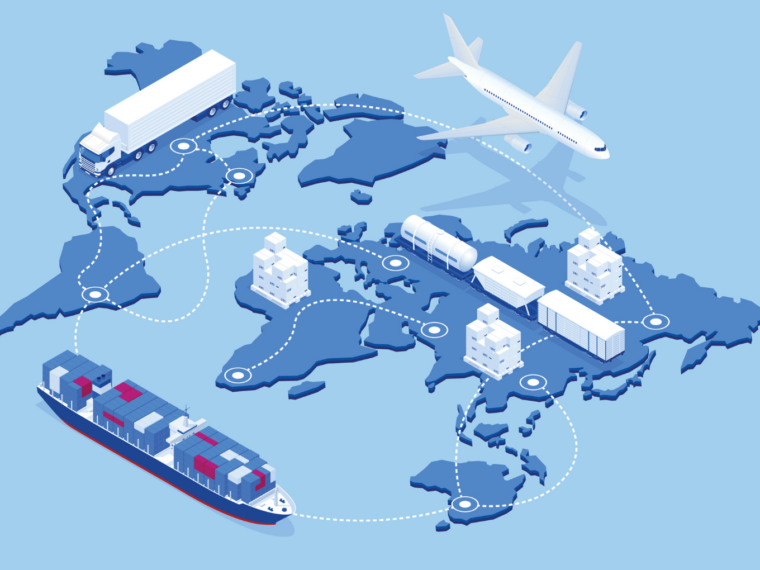
SUMMARY
Since experts think supply chain uncertainty will persist in the near future, startups must become resilient
Over 80% of supply chain disruptions begin with lower-tier suppliers, particularly those located in areas with limited visibility
Supply chain leaders should take decisive steps towards establishing a single point of contact to consolidate the organisation's collective responses
Over the last two years, the supply chain industry has been in constant flux. The emergence of the pandemic, as well as the constantly changing geopolitical climate, has caught businesses off guard. For instance, a shortage of semiconductor chips exacerbated the situation when the IT and automotive industries began to return to normal.
While experts predict that supply chain uncertainty will persist in the near future, startups must be resilient. They must take steps to improve supply chain resilience while balancing cost and operational efficiency. Despite such drastic changes, only a few businesses are prepared for a chain disruption.
According to a Gartner survey, only 21% of respondents have a highly resilient network. That is, only a small percentage of respondents have good visibility and the agility to quickly divert sourcing, manufacturing, and distribution activities.
As a result, it is critical for startups to identify business goals as well as invest in supply chain resiliency to minimise unforeseen supply chain disruptions.
Here are a few steps supply chain leaders can take to strengthen their supply chain against future disruptions:
Identify Pain Points
Founders should take decisive steps toward establishing a single point of contact to consolidate the startup’s collective responses. They should assemble a diverse team of individuals with diverse skill sets to effectively coordinate and manage proactive responses to concerns that have the potential to cause major disruptions in their supply chain.
Furthermore, these supply chain leaders should ensure that their teams have the necessary resources, operational capabilities, decision-making tools, and a robust threat detection system.
These threat detection tools should be designed to track and notify potential political developments, cyber threats, compliance risks, and regulatory risks that could disrupt the supply chain.
This calls for robust risk management systems, such as the use of shipping tracking systems to allow companies to monitor and predict risks. Use of data analytics to build contingency plans and new-age tech such as AI chatbots, automated warehouses and more brings in efficiency.
Prepare For The Unknown
It is not always easy to plan for the unexpected where there is little room for a “steady state.” According to one McKinsey study, organisations can expect supply chain disruptions that last one month or longer at least once every four years. Furthermore, another study found that organisations can lose 45% of their one-year profit over the course of a decade.
To avoid such drastic effects on a startup’s growth and revenue, the founders must take steps to strengthen their supply chain. They should discuss possible disruptions with their vendors and advise them to stock items in short supply. They should also allow for a smooth transition from regular to irregular operations.
Decrease Dependency And Supplier Risk
Over 80% of supply chain disruptions begin with lower-tier suppliers, particularly those located in areas with limited transparency and visibility. While most supply chain managers have long been aware of these flaws, the traditional systems and processes in place have made mitigating these risks difficult. Startups should indeed have confidence in their suppliers to deliver their items with consistent pricing and volumes.
However, relying on a single supplier, especially in these uncertain times, is asking for trouble. As a result, startups should advocate for the development and cultivation of partnerships with multiple vendors who can meet their needs in times of uncertainty while the business continues to operate without major disruptions.
Capitalise On Elastic Logistics
Transportation and logistics management are the pillars that hold the supply chain together. At the same time, these can act as vulnerabilities and major expenditures, which can harm the organisation’s business operations in the long run. Traditional logistics operations are expensive because they involve an organisation-owned fleet and one or more third-party logistics providers. They also offer less flexibility, which can have a negative impact on business case scenarios.
Businesses benefit from elastic logistics because they get an on-demand logistics network that can stretch and shrink as needed. Organisations can look for ride-sharing companies that offer a large number of shipping and last-mile logistics resources in real-time, only when they are needed, significantly lowering the cost of business operations.
Disruptions in the supply chain, no matter how minor they appear, can have a significant impact on business operations. While supply chain uncertainty persists, startups must remain alert and constantly seek ways to invest in supply chain resilience to mitigate its impact. To better prepare for uncertainty in any department, they should embrace resilience in their supply chain and across enterprise-wide departments.






























 Ad-lite browsing experience
Ad-lite browsing experience